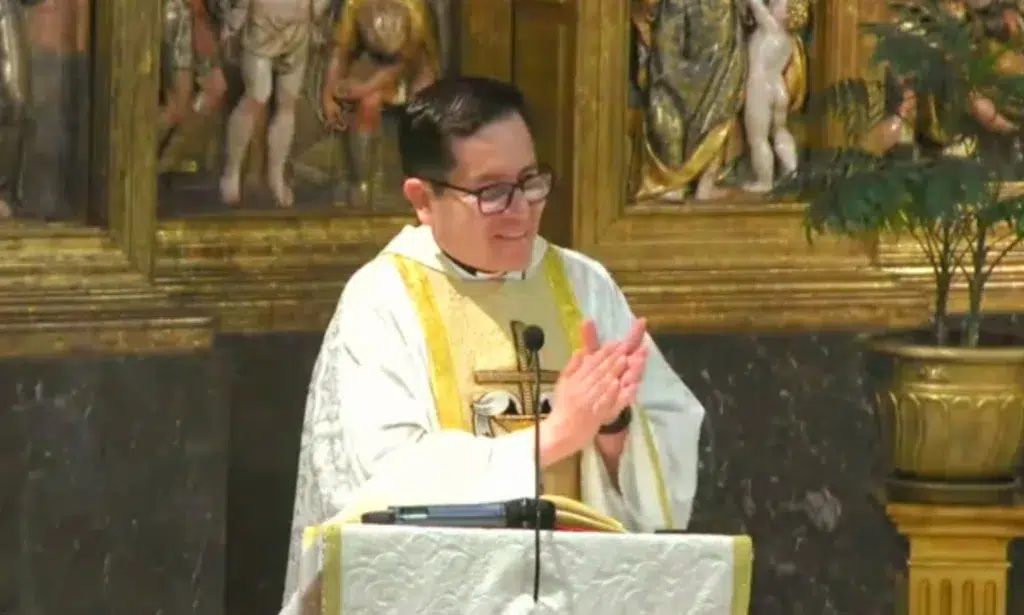Leo XIV: Two priests from Peru speak about him
Erick Vílchez and Christian Munayco Peves are priests from Peru who knew Pope Leo XIV. They tell us about their meeting and their impressions of the former Bishop of Chiclayo
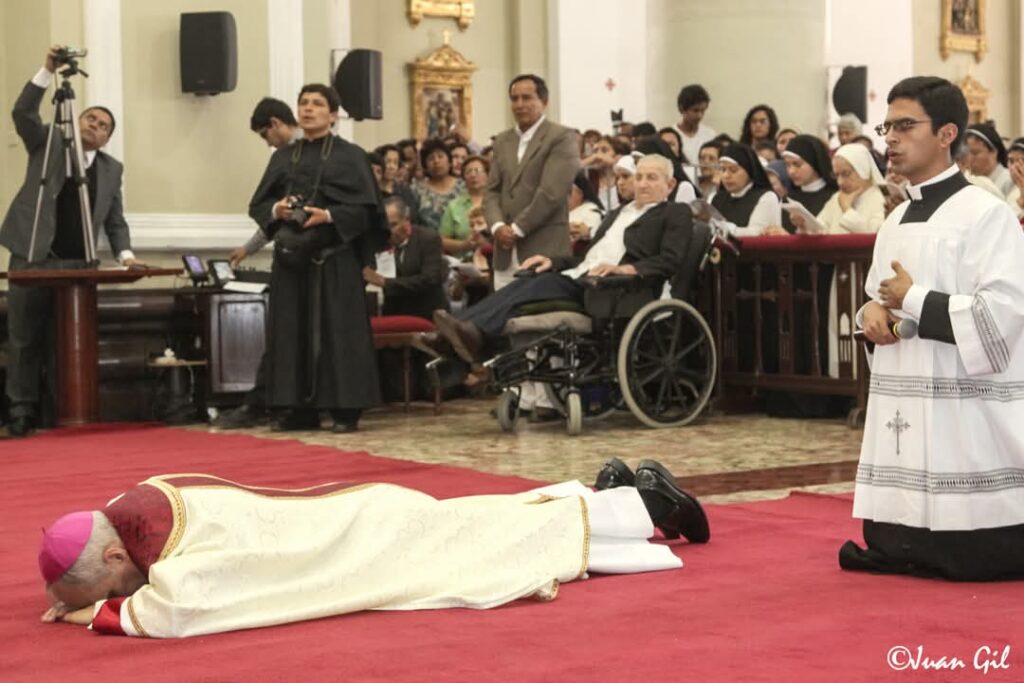
Father Erick Vílchez is a Peruvian who personally knew Pope Leo XIV. When he was a seminarian training to become a priest, he attended the episcopal ordination of Robert Francis Prevost as master of ceremonies. He belongs to the territorial prelature of Chota, a suffragan of the Archdiocese of Piura.
“I have known Pope Leo XIV since he was an apostolic Administrator of the Diocese of Chiclayo. As those who know him have stated, I always saw him as a very approachable person, with a great capacity for dialogue, a good listener, a smiler, and very obedient. He is very strong. But above all, I would highlight his profound love for the Church,” emphasizes Father Erick.
But he remembers with the greatest fondness the day he participated as master of ceremonies in Leo XIV’s episcopal ordination on December 12, 2014.
Erick’s first encounter with Pope Leo XIV left him with this memory: “The first time I spoke with Monsignor Robert, having just arrived in Chiclayo, I introduced myself and said: ‘Monsignor, we are in charge of the liturgy; we are here to serve.’ I remember that with his simplicity and a smile, he replied: ‘That’s great, just in case, I am very obedient. So let’s prepare in the best way possible.’ There, I saw that closeness, his simplicity of that time Monsignor Robert, now the Holy Father,” Erick declared.
An Agreement with the University of Navarra
Don Erick trained and studied at the Santo Toribio Seminary in Mogrovejo de la Chiclayo (Peru) when Monsignor Robert Francis Prevost Martínez was bishop of the diocese. He was ordained in 2019 at the age of 26. He is currently studying for a Licentiate in Dogmatic Theology at the Ecclesiastical Faculties of the University of Navarra.
The seminary has an agreement with the Faculty of Theology of the University of Navarra for affiliation with the seminary’s four-year theological program. This agreement was endorsed by a decree of the Congregation for Catholic Education on seminaries and institutes of study, which is renewed every five years.
On May 8th, the Baccalaureate examination of four seminarians from Santo Toribio took place, with a visit from Professor Félix María Arocena of the University of Navarra.
In a Chiclayo prison
Erick also recalls meeting Bishop Prevost in a Chiclayo prison to assist inmates and celebrate the sacraments. “In some conversations I had with him, he insisted that we must develop ourselves with a missionary mindset, to value the sense of mission, starting with our own people, with those closest to us,” he notes.
This Peruvian priest harbors hope that the new Pope Leo XIV, who holds dual American and Peruvian nationality, will encourage many young Peruvians to consider returning to the Catholic Church and others to deepen their vocation, whether to become a priest, to religious consecration, or as lay people, celibate, or in a vocational commitment to marriage.
“I feel a great emotion!”
“The Pope is always the Pope, but we are very happy to have a Peruvian Pope! I feel a great emotion!” exclaims Erick.
Don Christian, Canon Law Student in Navarra
Christian Munayco Peves is another Peruvian priest, originally from Cañete, who has just completed his Licentiate in Canon Law at the University of Navarra. He belongs to the diocese of Ayacucho, high in the Peruvian Andes. He completed his philosophical and theological studies at the San Martín de Porres Major Seminary in Lima and completed them at the Juan XXIII Higher Institute of Theological Studies.
Likewise, he was ordained a priest on the feast day of St. Josemaría Escrivá, June 26, 2021. Christian recounts how he met Leo XIV: “My archbishop was twice elected president of the Episcopal Conference. That meant I was constantly visiting the Episcopal Conference to meet and discuss matters. In the corridors of the conference, I remember running into the man who is now the Holy Father. We exchanged cordial greetings, but nothing more. From those few experiences, I can say that he is an affable, friendly person, of few words, but above all, extremely simple and approachable.”
The Missionary Spirit of Leo XIV
For him, Pope Leo XIV was a pastor in constant communion and communication with his faithful, and his visit to Peru only served to recognize that one can follow and serve God, beyond one’s own lands, with a missionary spirit of service, self-denial, and self-forgetfulness.
He also says that, among his Peruvian colleagues, knowing that the Pope knows their territory very well, “we greatly appreciate his position of always confronting with the truth, realities, and circumstances that have required his defense and listening, regarding issues concerning social order, charity, and justice.”
The Pope and Young People
For this priest, who comes from a deeply Catholic family that guided him on the path of his vocation, the election of a Peruvian Pope will stir the conscience of Peru’s youth to consider their vocation: “Without a doubt, this election is a living and effective testimony that one can be happy in the midst of the world, serving and working in God’s work, saving souls.”
The environment in which Pope Leo worked—both as an Augustinian religious and as a bishop—was always among young people, the same people who, since his election, have been called to rethink with greater interest their closeness to the Church and the parish, to reconsider that, alongside one’s life and professional work, one can be holy, with that evident restlessness of knowing that God often asks for more, because he knows more, and because he wants more from those he loves, he affirms.
“Do not be afraid!”
For him, the Holy Father’s first words to young people on Sunday at the Regina Caeli: “Do not be afraid, accept Christ’s invitation!” remind us with special affection of the words of Saint John Paul II, also at the beginning of his pontificate.
Therefore, it remains a message of hope, since we cannot be afraid to experience a life that, for purely human reasons, often goes against the designs and proposals of love and forgiveness outlined by Jesus.
In the face of this dissonance, God counts on us to be co-redeemers, to bear with Him the cross of human logic, which often tries to diminish the value and validity of His message. Therefore, the message of “not being afraid” invites us to stand for the truth, even though its defense may entail the offensive of suffering, exclusion, or injustice, but behind it opens a vast door to heaven, Christian explains.
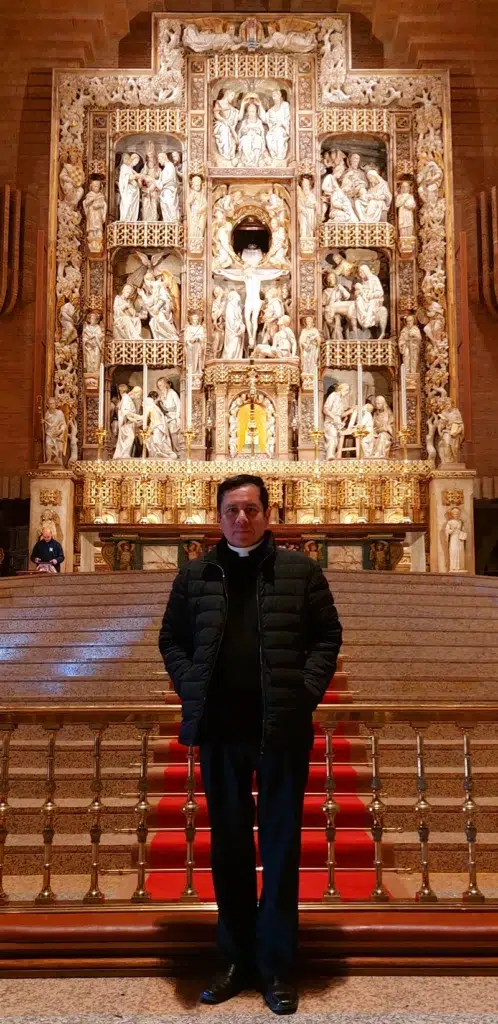
Testimony of Priestly Life
This young priest believes that today, to nurture vocations in general, and in Peru in particular, the answer is: with a true testimony of priestly life. “For this reason, I cannot but thank the Spanish missionary priests, who, leaving their lands, promoted priestly vocations in my parish. They were faithful witnesses and credible models that choosing the priesthood was a decision that led us to happiness.”
For Father Christian, the papal election has been very joyful news for all Peruvians, because “it has not only awakened overwhelming and gratifying emotions, but it has also restored our enthusiasm for the things of God, and that important spiritual sense of identification and belonging to our local Church.”
The Pope speaks of unity
He is also struck, with a profound sense of hope, by the fact that the Pope has spoken of unity, in the midst of a world divided by hatred, political calculations, arms wars, but also by spiritual wars that seek to divide the Church.
“We trust that, assisted by the Holy Spirit and united with our prayers, the Church will move in the right direction, because she has a good shepherd whose goal is to ensure that each of his sheep not only walks in the good fold, but above all, does not get lost. I would like to take this opportunity to thank the CARF Foundation for allowing many of us priests to train so that we can serve with better academic means the people God entrusts to us,” concludes Christian Munayco Peves.
Related
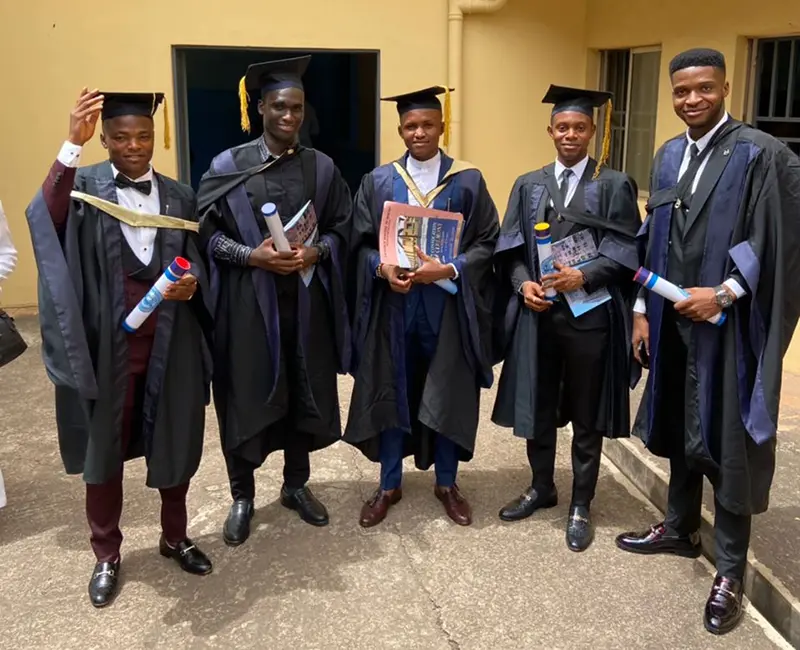
John Paul: “I aspire to be a priest”
Fundación CARF
20 May, 2025
4 min
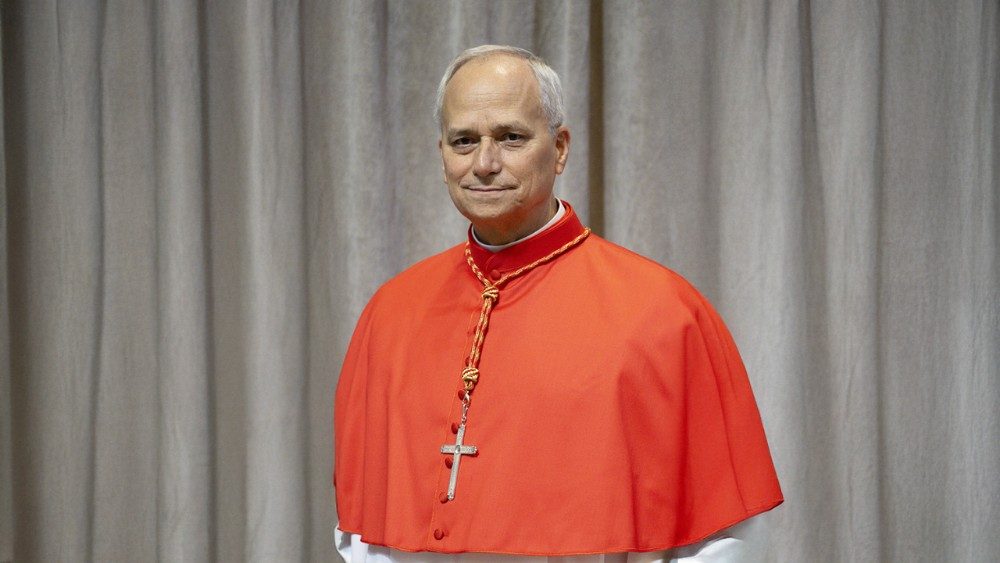
Mission Horizons with the New Pope Leo XIV
Agustín Ortega
16 May, 2025
7 min
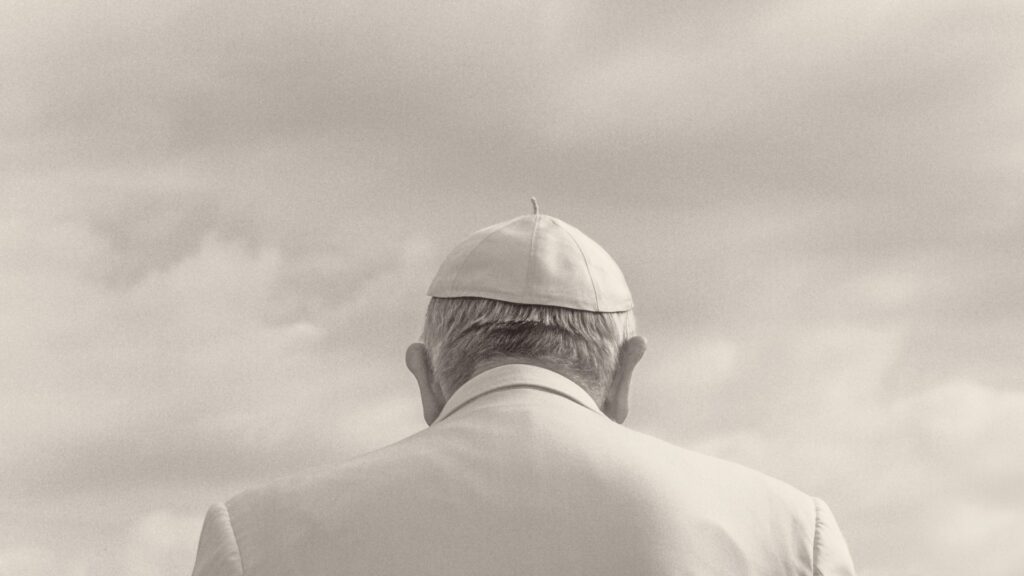
Loving the Pope from a Distance: A Close Look at Francis’s Pontificate
Larissa I. López
15 May, 2025
5 min
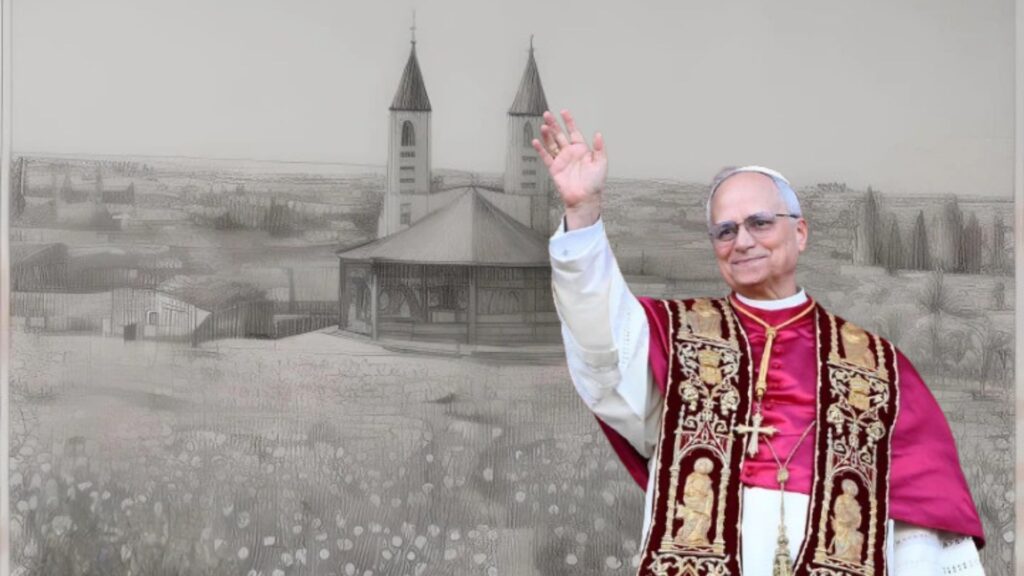
To the Pope of Peace from Medjugorje, the people of Our Lady of Peace
Isabel Durán Doussinague
14 May, 2025
2 min
 (EN)
(EN)
 (ES)
(ES)
 (IT)
(IT)


